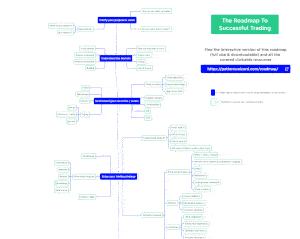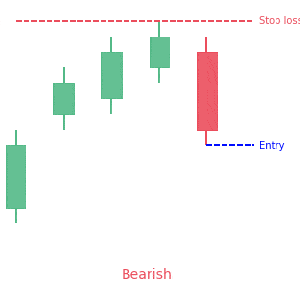Expiry in derivatives refers to the day on which a derivative contract expires. All derivatives contracts are based on any underlying security run for a particular time period. They all expire at the end of that period and new ones are issued after that. Furthermore, the contract is finally settled between the seller and the buyer upon the expiry date. Simply put, the expiry date in derivatives is a very important aspect of futures and options trading.
It is very important to learn what happens when expiration day arrives on the trading calendar. If you want to know in detail about expiry in derivatives then you are on the right platform. In this article, we are going to explain in detail how expiration works and what happens on the expiration date. Let’s dive deep to find out.
Expiry in derivatives definition
Expiry in derivatives refers to the date on which a derivative contract based on any underlying security expires. The contract remains no longer valid after the expiry date.
How does expiration work
As you know, all derivative contracts are based on an underlying security. The underlying security can be any security including stocks, indexes, commodities, etc. As underlying securities never expire, it is only the derivative contract that expires and loses its validity. That’s why all derivatives are fulfilled on or by the date of expiration. Furthermore, contracts are settled between buyers and sellers upon expiration.
The settlement between buyer and seller is the very foundation of a derivative contract. As you know, futures and options are two types of derivative contracts traded on the exchange. A buyer buys the contract with an agreement to buy or sell the underlying security at a fixed date in the future. This fixed date is the expiry in derivatives. On the expiry date, the seller of the contract has to fulfill the agreement. It is important to note that it is mandatory for sellers but buyers have the right to either exercise the contract or let it expire.
Why is expiry in derivatives important?
The derivative market isn’t an easy one for trading. Traders have to analyze a lot of factors before opening a position. Firstly, the most important factor is the underlying security. As the security determines the value of a derivative contract, traders keep an eye on its price movement. Secondly, factors like open interest, Option Greeks, etc. are factors traders have to analyze. Traders may decide to square off their position and they may do so any time before the expiry of derivatives. So, most short-term traders may take profit or cut losses before the expiry date.
What is square off? Square off refers to an intraday derivative trading strategy. It involves closing your open position before the end of the day. The strategy requires traders to buy another contract that reverses or cancels out the original position. For instance, if you are holding a call option with stocks of a company as an underlying security, you need to sell a put option to reverse your current position.
However, if traders decide to settle the contract, the seller must oblige. Therefore, the expiry date is important because contracts are settled on this date.
There are two ways to settle a derivative contract between buyers and sellers upon expiry in derivatives.
- The first way is physical delivery. In this kind of settlement, the seller of the contract delivers the quantity of the underlying security to the buyer. The buyer pays the full price of the security acquired from the seller.
- The second way is the cash settlement. In this kind of settlement, the seller of the contract settles the contract by paying cash to the buyer. The buyer receives a cash amount that equals the difference between the spot price and the derivative price.
Do expiry in derivatives affect stock prices?
Yes, expiry in derivatives affects stock prices. All beginners and average traders only know that the price of an underlying security affects the value of a derivative contract. However, it is also possible that derivative contracts also affect the price of an underlying security. Even though it doesn’t happen very often, it does happen, especially when traders anticipate favorable trading conditions.
For example, if traders are optimistic about a particular stock or security, the trading volume of the derivative with that underlying security increases. This bullish outlook of the derivative traders flows to traders and investors operating in the spot market. They may engage in buying activities and thus push prices higher. Similarly, if traders are pessimistic about security, there is an increase in derivative contracts that allow holders to sell that particular security. As a result of this activity in the derivative market, spot traders also affect. So, higher sell pressure pushes the price of that particular security down.
The wrap-up
Expiry in derivatives is the date on which derivative contracts expire. Sellers of contracts are bound by the agreement to settle the contract with the buyer on expiration. Traders who don’t square off their positions, settle with the sellers. There are two ways to settle a contract. Both parties may settle through physical delivery of the underlying security or cash settlement. Settlement is the reason why expiry in derivatives is important.
 Good Trading requires the Best Charting Tool!
Good Trading requires the Best Charting Tool!

 We loved Marwood Research’s course “Candlestick Analysis For Professional Traders“. Do you want to follow a great video course and deep dive into 26 candlestick patterns (and compare their success rates)? Then make sure to check this course!
We loved Marwood Research’s course “Candlestick Analysis For Professional Traders“. Do you want to follow a great video course and deep dive into 26 candlestick patterns (and compare their success rates)? Then make sure to check this course!